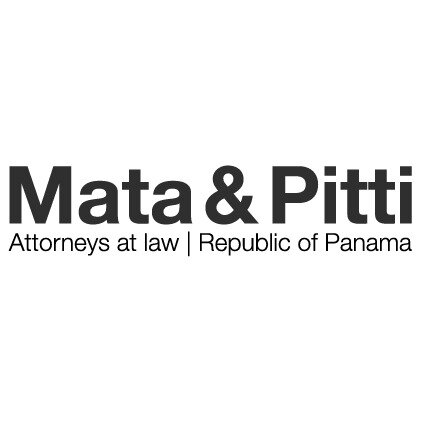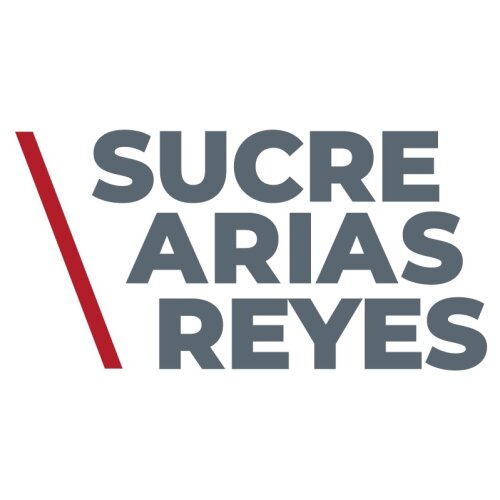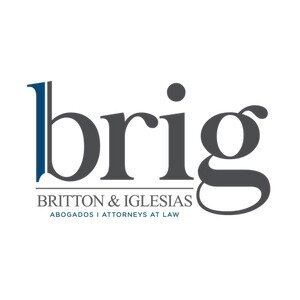Best Renewable & Alternative Energy Lawyers in Panama City
Share your needs with us, get contacted by law firms.
Free. Takes 2 min.
List of the best lawyers in Panama City, Panama
About Renewable & Alternative Energy Law in Panama City, Panama
Panama City, Panama is rapidly emerging as a key regional hub for renewable and alternative energy initiatives. Over the past decade, the Panamanian government has implemented a variety of policies to encourage the growth of clean energy projects, such as solar, wind, and hydropower. These policies are designed to support sustainable development, reduce dependence on fossil fuels, and ensure the country's energy security. As the demand for environmentally friendly power sources rises, the legal landscape surrounding renewable energy continues to evolve, with a clear focus on project development, environmental compliance, and investment regulation.
Why You May Need a Lawyer
Whether you are an entrepreneur, investor, developer, or landowner, navigating the legal aspects of renewable and alternative energy can be complex. Here are some common scenarios where you may need legal assistance:
- Understanding the permitting and licensing requirements for renewable energy projects
- Negotiating contracts and power purchase agreements (PPAs) with utility companies or the government
- Ensuring environmental compliance and conducting impact assessments
- Securing financing and structuring investments for energy projects
- Protecting intellectual property relating to energy technology
- Resolving disputes involving land use, regulatory compliance, or project ownership
A specialized lawyer can help interpret the regulatory framework, protect your interests, streamline project approvals, and ensure contractual obligations are clearly defined and enforceable.
Local Laws Overview
Renewable and alternative energy activities in Panama City are primarily governed by national laws and regulations, with additional guidelines set by municipal authorities. The most relevant legal aspects include:
- Law 6 of 1997 and Law 44 of 2011: These establish the regulatory foundation for the electricity sector, including provisions for renewable energy integration.
- Law 45 of 2004: Sets incentives for the development and use of renewable energy resources, offering tax benefits and other financial advantages to qualifying projects.
- Regulation AN No 28 of 2012: Outlines procedures for the authorization of new generation plants using renewable technologies.
- Environmental Regulations: Projects must comply with environmental impact assessment (EIA) requirements, as set by the Ministry of Environment (MiAmbiente).
- Municipal Permitting: Local authorities may require additional approvals and land use permits for project installation within Panama City limits.
- Grid Connection Standards: Companies must follow the rules set by the National Dispatch Center (CND) and the Transmission Company (ETESA) for integrating renewable generation into the national grid.
Understanding and complying with these intersecting regulations is essential to launch or operate a renewable energy project successfully in Panama City.
Frequently Asked Questions
What qualifies as renewable and alternative energy in Panama?
Renewable and alternative energy sources include solar, wind, hydroelectric, biomass, and geothermal. These technologies are recognized in Panamanian law and are eligible for various incentives and regulatory support.
How do I get a permit for a renewable energy project in Panama City?
You must apply through the National Authority of Public Services (ASEP) for generation licenses and the Ministry of Environment for environmental permits. Additional municipal permits may be needed depending on project location.
What incentives are available for renewable energy investments?
Panama offers a range of incentives, such as income tax exemptions, import duty waivers for equipment, and accelerated depreciation for qualifying renewable energy projects.
Are there restrictions on land use for renewable energy projects?
Yes, zoning and land use regulations apply, especially in urban and protected areas. Legal advice is recommended to conduct proper due diligence before acquiring land.
Can foreign investors participate in renewable energy projects?
Yes, foreign individuals and companies can invest in renewable energy projects in Panama, subject to standard registration and licensing procedures.
Do I need a Power Purchase Agreement (PPA)?
Most commercial renewable energy operations require a signed PPA with either the national grid operator or an authorized utility to guarantee the sale of generated electricity.
What are the environmental obligations for a renewable energy project?
You must conduct an environmental impact assessment and comply with all environmental protection standards set by the Ministry of Environment. Failure to do so can result in project delays and penalties.
How is grid connection managed for new renewable energy installations?
Grid connection requires approval from the national grid operator ETESA and compliance with technical standards to ensure safety and reliability.
What legal risks should I be aware of?
Potential legal risks include permitting delays, land disputes, changes in incentives, and contractual disagreements with partners or utility companies. A lawyer can help mitigate these risks.
How can a lawyer help if I run into problems with government authorities?
A specialized lawyer can act as your representative in negotiations, appeals, or dispute resolution with government agencies to protect your interests and ensure regulatory compliance.
Additional Resources
Here are some valuable organizations and governmental bodies you can consult regarding renewable and alternative energy legal matters in Panama City:
- National Authority of Public Services (ASEP): Regulates electricity generation, distribution, and licensing.
- Ministry of Environment (MiAmbiente): Oversees environmental impact assessments and environmental compliance.
- Transmission Company (ETESA): Manages the national electricity grid and grid connection standards.
- Panama Green Building Council: Promotes sustainable project practices and may connect you with industry professionals.
- Local Bar Associations and Energy Law Specialists: For referrals to lawyers with expertise in renewable energy law.
Next Steps
If you require legal assistance for a renewable or alternative energy project in Panama City, here are practical steps to follow:
- Define your project's scope and objectives, including potential locations and energy sources.
- Gather all available documentation related to your project or investment.
- Consult with a local lawyer who has experience in renewable and alternative energy law for a comprehensive legal assessment.
- Work with your lawyer to prepare permit applications, review contracts, and ensure compliance with all applicable laws and regulations.
- Maintain clear records of communications with regulatory authorities and project partners.
Early legal counsel is key to avoiding delays and preventing costly legal issues. By understanding the regulatory landscape and working with experienced professionals, you can successfully navigate the complexities of renewable and alternative energy law in Panama City, Panama.
Lawzana helps you find the best lawyers and law firms in Panama City through a curated and pre-screened list of qualified legal professionals. Our platform offers rankings and detailed profiles of attorneys and law firms, allowing you to compare based on practice areas, including Renewable & Alternative Energy, experience, and client feedback.
Each profile includes a description of the firm's areas of practice, client reviews, team members and partners, year of establishment, spoken languages, office locations, contact information, social media presence, and any published articles or resources. Most firms on our platform speak English and are experienced in both local and international legal matters.
Get a quote from top-rated law firms in Panama City, Panama — quickly, securely, and without unnecessary hassle.
Disclaimer:
The information provided on this page is for general informational purposes only and does not constitute legal advice. While we strive to ensure the accuracy and relevance of the content, legal information may change over time, and interpretations of the law can vary. You should always consult with a qualified legal professional for advice specific to your situation.
We disclaim all liability for actions taken or not taken based on the content of this page. If you believe any information is incorrect or outdated, please contact us, and we will review and update it where appropriate.
















